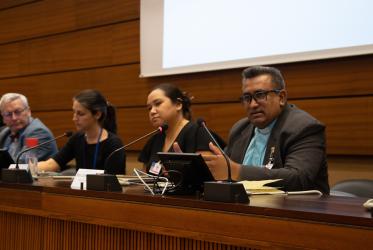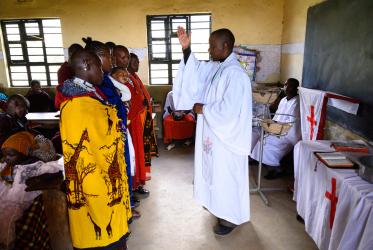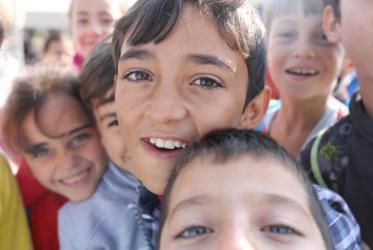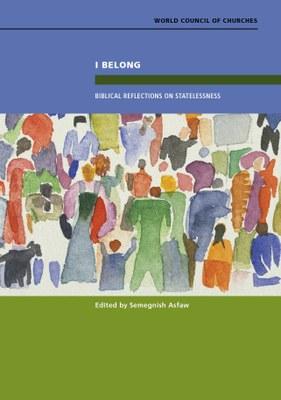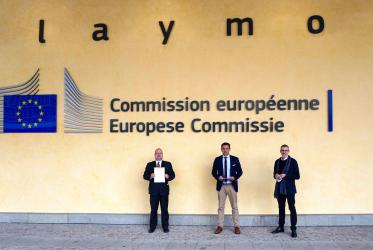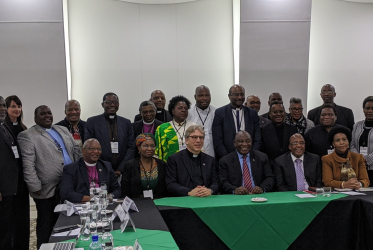Displaying 1 - 20 of 103
Ukraine: Responding to humanitarian need
08 September 2022
Christians in Africa face increasing violent attacks, repression
23 December 2020
“From faith to action” conference will explore ways to protect children’s rights affected by migration
10 - 11 December 2020
Online
Webinar - “People on the Move: Solidarity and Advocacy”
12 November 2020
https://www.oikoumene.org/live
Webinar will highlight “People on the Move: Solidarity and Advocacy”
05 November 2020
I Belong: Biblical Reflections on Statelessness
Biblical Reflections on Statelessness
12 October 2020
Ecumenical statement on migration received by European Commission
25 September 2020
WCC delegation meets with South African President Ramaphosa
09 December 2019
Webinar on Middle East racism: “Never lose hope”
28 November 2019
WCC co-signs message to UN on statelessness
07 October 2019

